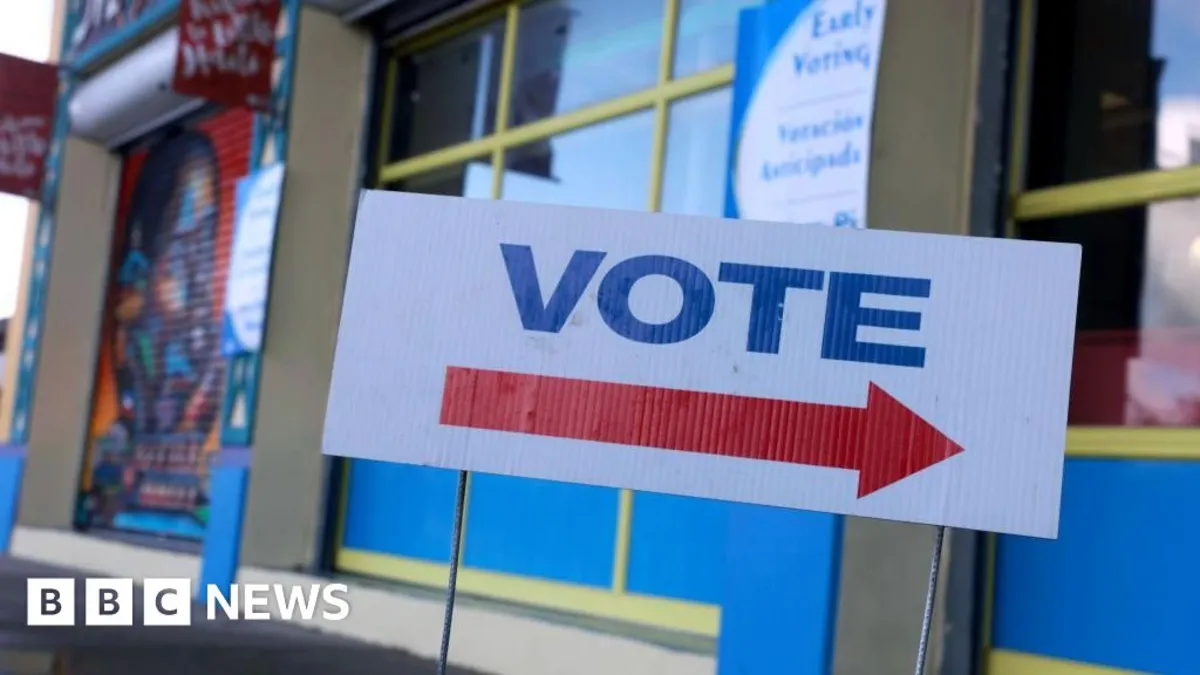
On Tuesday, former President Donald Trump signed a significant executive order aimed at overhauling elections across the United States. This sweeping action introduces measures such as requiring documentary proof of citizenship to register to vote in federal elections and mandates that all ballots be received by Election Day. Trump's order asserts that the U.S. has failed to enforce "basic and necessary election protections," and it calls on states to collaborate with federal agencies to share voter lists and prosecute suspected election crimes.
The executive order also threatens to withhold federal funding from states that fail to comply with these new election directives. This move is expected to face immediate legal challenges, as states retain broad authority over their own election rules. Trump's actions align with his long-standing criticism of the electoral process, which he claims is often "rigged." Since losing the 2020 election to Democrat Joe Biden, Trump has consistently argued that widespread fraud tainted the results, despite a lack of evidence.
Trump has particularly focused on mail voting, arguing without substantial evidence that it is insecure and invites fraud. His position has shifted over time, reflecting the popularity of mail-in voting among various voter demographics, including Republicans. While instances of voter fraud do occur, they are rare and typically prosecuted. The order's requirement for documentary proof of citizenship indicates that Trump is not waiting for congressional Republicans to pass the anticipated Safeguard American Voter Eligibility Act (SAVE Act), which seeks to implement similar measures.
Voting rights advocates have expressed significant concerns that the new requirement could disenfranchise a considerable number of voters. According to a 2023 report by the Brennan Center for Justice, an estimated 9% of U.S. citizens of voting age—approximately 21.3 million people—do not have readily available proof of citizenship. Additional concerns have been raised regarding married women who may face challenges registering due to name changes reflected in their birth certificates.
The executive order directs federal agencies, including the Department of Homeland Security, the Social Security Administration, and the State Department, to share data with election officials to help identify noncitizens on voter rolls. Furthermore, it instructs the attorney general to prioritize the enforcement of federal election integrity laws in states that do not share information about suspected election crimes with the federal government.
Trump's order aims to enforce a requirement that all votes must be "cast and received" by Election Day. Currently, 18 states and Puerto Rico permit mailed ballots received after Election Day, provided they are postmarked on or before that date. Given that the U.S. Constitution grants states the primary authority over election procedures, this order is likely to encounter legal hurdles.
Colorado's Democratic Secretary of State, Jena Griswold, has labeled the executive order an "unlawful" weaponization of federal power, arguing that it aims to make voting more difficult. Legal experts, including former White House advisor Justin Levitt, acknowledge that while the executive branch does possess some authority over elections, states ultimately determine the "times, places, and manner" of elections.
Trump's executive order also calls for the Election Assistance Commission to revise guidelines for voting systems, emphasizing those that provide voters with a paper record of their ballot. The order suggests that federal funding for states be contingent upon compliance with these new guidelines. Despite the controversy, Georgia's Republican Secretary of State, Brad Raffensperger, has praised the order as a positive step toward enhancing election integrity.
The executive order comes amid a broader effort by the Republican National Committee to scrutinize voter registration list maintenance across the nation. Trump has indicated that further actions regarding election integrity will be forthcoming. As this situation unfolds, the implications for voting rights and election processes in the United States remain a topic of significant debate and concern.